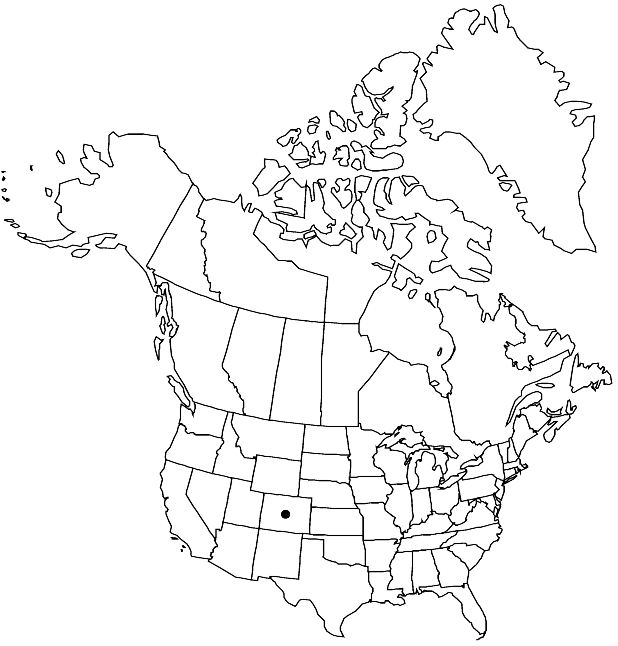Draba graminea
Pl. Baker. 3: 5. 1901.
Perennials; (cespitose); caudex simple or branched (with persistent leaf bases); not scapose. Stems unbranched, 0.1–0.5(–0.8) dm, usually pubescent throughout, rarely glabrous, trichomes simple or subsessile, 2-rayed or spurred, (crisped), 0.1–0.5 mm. Basal leaves rosulate; petiolate; petiole ciliate, (trichomes usually straight and simple, rarely also 2-rayed, 0.2–0.6(–0.8) mm); blade linear to linear-oblanceolate, (0.5–)1–4 cm × 0.3–2(–3) mm, margins entire (pubescent as petiole), surfaces glabrous. Cauline leaves (1–)3–9(–12) (as bracts); sessile; blade linear to oblanceolate or lanceolate, margins entire, (ciliate proximally, similar to basal). Racemes 3–15-flowered, bracteate, elongated in fruit; rachis not flexuous, usually pubescent as stem, rarely glabrous. Fruiting pedicels divaricate-ascending, usually straight, rarely curved upward, 3–10(–15) mm, usually pubescent as stem, rarely glabrous. Flowers: sepals ovate, 1.5–2.5 mm, glabrous or pubescent, (trichomes simple and short-stalked, 2-rayed); petals yellow, spatulate to obovate, 3–5 × 1.5–3 mm; anthers ovate, 0.3–0.5 mm. Fruits ovate-elliptic to lanceolate, slightly twisted or plane, flattened, 5–11 × 2.5–5 mm; valves glabrous; ovules 8–16 per ovary; style 0.2–0.7 mm. Seeds ovoid, 1.2–1.5 × 0.7–1 mm. 2n = 18.
Phenology: Flowering Jul–Sep.
Habitat: Rocky areas and ridges, alpine tundra, gravel bars in streams
Elevation: 3000-4100 m
Discussion
Of conservation concern.
Draba graminea is occasionally confused with D. crassa, which occupies similar habitats and elevations. It is easily distinguished from the latter by having narrower [0.3–2(–3) versus 2.5–8(–10) mm wide] basal leaves and bracteate (versus ebracteate) racemes. It is known to us only from Hinsdale, La Plata, Ouray, San Juan, and San Miguel counties.
Selected References
None.
